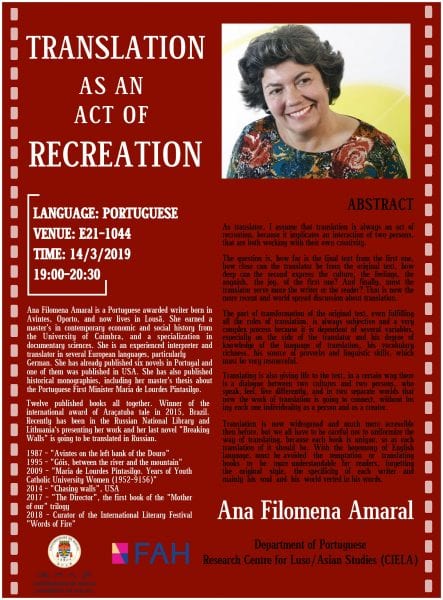As translator, I assume that translation is always an act of recreation, because it implicates an interaction of two persons, that are both working with their own creativity.
The question is, how far is the final text from the first one, how close can the translator be from the original text, how deep can the second express the culture, the feelings, the anguish, the joy, of the first one? And finally, must the translator serve more the writer or the reader? That is now the more recent and world spread discussion about translation.
The part of transformation of the original text, even fulfilling all the rules of translation, is always subjective and a very complex process because it is dependent of several variables, especially on the side of the translator and his degree of knowledge of the language of translation, his vocabulary richness, his source of proverbs and linguistic skills, which must be very resourceful.
Translating is also giving life to the text, in a certain way there is a dialogue between two cultures and two persons, who speak, feel, live differently, and in two separate worlds that now the work of translation is going to connect, without losing each one individuality as a person and as a creator.
Translation is now widespread and much more accessible then before, but we all have to be careful not to uniformize the way of translating, because each book is unique, so as each translation of it should be. With the hegemony of English language, must be avoided the temptation or translating books to be more understandable for readers, forgetting the original style, the specificity of each writer and mainly his soul and his world verted in his words.
Ana Filomena Amaral
Date: 14 March 2019
